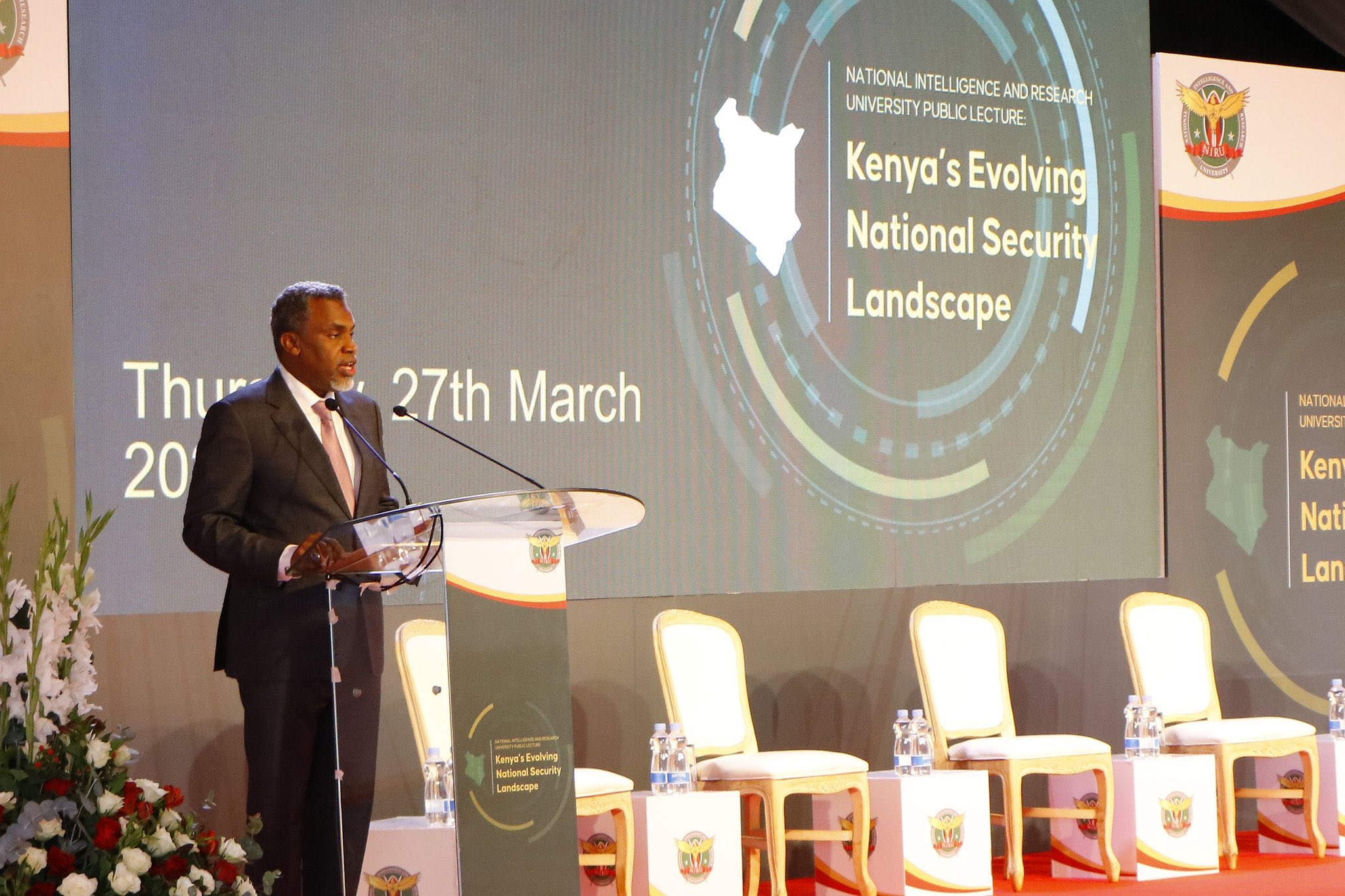Kenya must look outward or risk being overrun, NIS boss Noordin Haji warns

With his lecture, Noordin signaled a shift in tone for Kenya's spy agency—one that now sees public engagement and transparency as essential to navigating the new security reality.
Kenya's top intelligence chief, Noordin Haji, has sounded a stark warning, saying the country can no longer afford to sit back and respond to crises as they erupt. Instead, it must adopt a forward-leaning, outward-looking foreign and security policy to stay ahead in an increasingly unpredictable and hostile region.
Delivering the National Intelligence Service's (NIS) inaugural public lecture on Thursday, Noordin painted a sobering picture of Kenya's security landscape—one shaped by escalating regional instability and compounded by shifting global alliances.
More To Read
- Revealed: How Kenyan detectives helped nab cocaine courier at London's Heathrow
- Family seeks court intervention in disappearance of security expert Mwenda Mbijiwe
- Why Kenya is seeking external support for counter-terrorism operations in Somalia
- Why former Kenyan security officers are turning to activism and challenging the state
- Wilson Boinnet memoir: Former spy chief lifts the lid on intelligence reform
- Raila loyalists accuse former DP Rigathi Gachagua of tribal profiling, demand action from NCIC
"Our great Republic is surrounded by states grappling with conflicts, and tense interstate relations resulting in disrupted trade, an influx of migrants, and cross-border crimes," Noordin said.
"These developments are severely straining our resources and hindering our efforts to promote regional integration and advance peace diplomacy."
From the civil war in Sudan to rising political tensions in South Sudan, from simmering insurgencies in Ethiopia's Oromia and Tigray regions to the escalating crisis in eastern Democratic Republic of the Congo (DRC), Kenya is increasingly encircled by fragile and volatile states.
In one of his most direct assessments, Noordin warned that the Oromo Liberation Army (OLA)—currently active near Kenya's northern frontier—poses a dual threat.
"The OLA elements and Al-Shabaab are symbiotically leveraging their networks along the Kenya-Ethiopia border in smuggling arms, narcotics and facilitating recruits," he noted, cautioning that continued instability could trigger an influx of refugees into northern Kenya and spark local tensions over resources.
But the threats aren't just regional.
Noordin argued that Africa, and Kenya by extension, is increasingly becoming the global epicenter of terrorism as traditional powers turn inward and embrace protectionism.
"This trend, particularly against the backdrop of Africa becoming the epicenter of terrorism, threatens to undermine support that has historically bolstered security efforts," he warned.
The NIS chief blamed the rise of extreme nationalism, weakening multilateralism, and disruptive technologies for a growing "risk with a high degree of randomness" that complicates intelligence work and regional cooperation.
He called for a recalibration of Kenya's foreign and security policy—one anchored in pan-Africanism and Agenda 2063, and supported by robust regional bodies like the AU, IGAD, and EAC.
"In the geopolitical landscape, Kenya, alongside other African nations, should strategically prioritise national interests while embracing African solutions to African problems," he urged.
With his lecture, Noordin signaled a shift in tone for Kenya's spy agency—one that now sees public engagement and transparency as essential to navigating the new security reality.
Top Stories Today












































